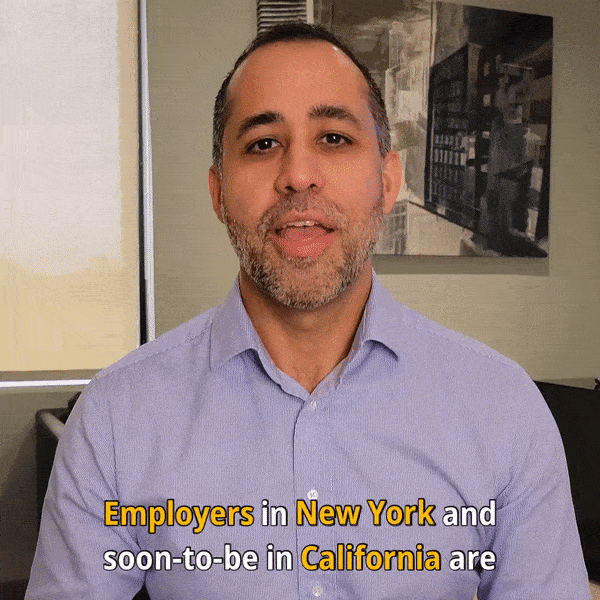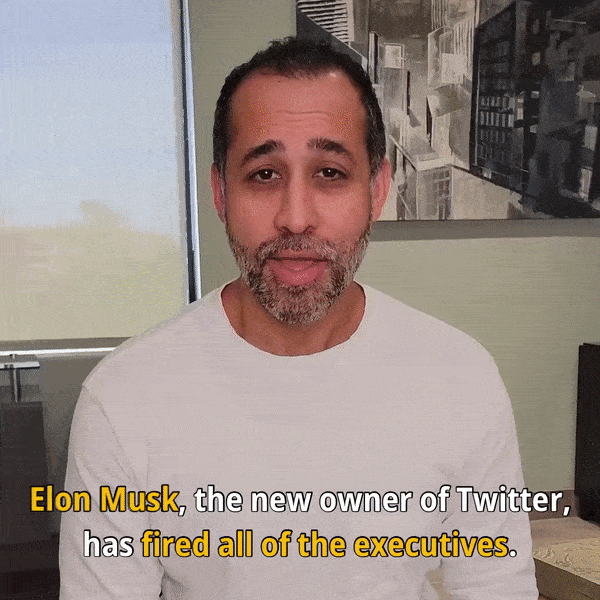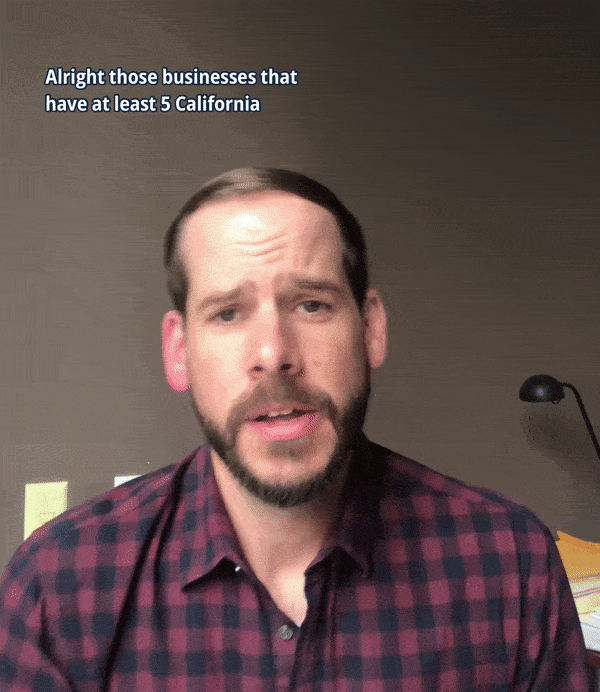Podcast: Download
Despite already having legislation that requires employers to allow for extended leave, a recent push for this leave to be “paid” is steadily emerging.
Family leave, often accompanied by medical leave, is something that has come to the forefront in the last couple months in the United States. While it has been part of employment law for some time, there has been a recent push to incorporate pay into already guaranteed time off work.
Keep in mind that family leave can involve “paid” and/or “non-paid” family leave. In addition to federal and state law, individual employers may enact their own policy that provides for better coverage required by law.
Many look at family leave and believe it is only for recent mothers. This is far from true as it can be used by everyone in a wide range of circumstances. Depending on which law you interpret, it can include time to take care of a family member who is sick, or for medical conditions you may yourself be suffering from. “Depending on the law” is the key phrase here as there are many that apply.
Federal law on family leave:
Legislation enacted in 1993 became the cornerstone for family leave. The Family and Medical Leave Act of 1993 (better known as “FMLA”) was enacted as a way to guarantee workers the right to take extended leave without fear of losing their jobs. Prior to that time, it was not uncommon for someone who took extended leave to be replaced and not have a job to return to.
The law allows employees to take up to 12 weeks per year under certain circumstances, while protecting them from termination while they are away. Certain provisions must be met prior, such as an employee meeting specific hour rules before they are eligible.
FMLA is NOT paid time off work. It is in place to protect people from losing their job in the event of an extended absence.
What typically happens is a person’s benefits (sick time, vacation, etc.) are depleted during their time away. This allows them to continue receiving pay while they are not working. Once they are out of benefits, they are still afforded the time off (up to the 12 weeks), but will not receive pay unless the employer does so voluntarily.
FMLA has helped many who may have otherwise been unwilling to take the time off for fear of losing their jobs.
Each state has individual laws on family leave
In addition to FMLA, individual states have their own laws concerning family leave. Currently, there are only three states that required “paid” family leave – California, New Jersey, and Rhode Island.
In 2007, the state of Washington passed paid family leave legislation, but it was never implemented. The law was subsequently repealed, leaving only the above three mentioned states with required paid family leave. The District of Columbia is the most recent to attempt legislation requiring paid family leave, calling for up to 16 weeks of paid leave for the birth of a child, a medical condition, or to care for a family member.
The states that do require paid leave are able to fund such programs through payroll taxes deducted from employees. In California, employees are only eligible if they participate in the state’s disability insurance program or some type of voluntary plan. This means that they are not automatically covered unless they voluntarily participate.
Here are links to additional information on family leave laws by state. If your state is not listed below, make sure to check your state’s government website as laws are constantly changing.
- California – Paid Family Leave Act
- Connecticut – Family & Medical Leave Act
- District of Columbia – Family and Medical Leave Act
- Hawaii – Hawaii Family Leave
- Maine – Family Medical Leave Requirements
- Minnesota – Parental Leave Act
- New Jersey – Family Leave Insurance
- Oregon – Oregon Family Leave Act
- Rhode Island – Rhode Island Parental and Family Medical Leave Act
- Vermont – Parental and Family Leave
- Washington – Washington State Family Leave Act
- Wisconsin – Family and Medical Leave Act
Recent views on family leave:
In August 2015, Netflix announced that it would extend its paid family leave policy. First, it is amazing that they have a “paid” policy as most employers do not. The new provision within the policy allows for unlimited time off in the first year for parents after the arrival of a new baby.
The announcement from Netflix caused a stir throughout the U.S. with many calling for other companies to follow suit. However, Netflix came under fire a few weeks later when it was determined the policy only applied to salary employees of one division of the company. This discovery led to even more proponents speaking out about companies implementing paid leave and extending it to all workers.
Facebook CEO Mark Zuckerberg became an immediate advocate of family leave in 2015 when he announced plans for a two month hiatus from the company for the birth of his first child. Of course, the topic of “paid” did not come up since his net worth is $48 billion, but it did help change the stereotype of maternity leave being only for women.
Implementing “paid” leave plans has also become campaign rhetoric for both Republicans and Democrats for 2016.
The idea of paid leave is now being supported by companies, employees, celebrities, and politicians. As such, we are likely to see a shift to paid policies sometime in the near future.
What you should do about family leave:
If you run a business, it is important to understand what is required for family leave. Failure to honor any of the requirements can leave a bad mark on your reputation and hurt you monetarily with fines from government agencies.
It is important that you document your family leave policy. Even if you plan to simply follow the requirements of the law, you still need to outline this for employees so they clearly understand. Failure to do so can lead to issues with disgruntled employees.
If you decide to grant benefits above and beyond what is required by law, make sure these are documented as well. Employees with family leave benefits consider them as important as sick leave and vacation time. As such, clearly establishing a policy of what you provide is important.
Overall, family leave is required by federal law. If you live in a state with additional legislation, make sure you follow it. If you are one of the few employers who go above and beyond, good for you. Just make sure everything is spelled out so that your entire workforce is on the same page.
Do you have a policy on family leave? If so, do you simply follow the law or do you extend benefits above and beyond? Would love to hear your thoughts.


![Unraveling the Workforce: Navigating the Aftermath of Mass Layoffs [e322]](https://www.pashalaw.com/wp-content/uploads/2023/07/Untitled-design-23-1024x723.png)
![Return to the Office vs. Remote: What Can Employers Legally Enforce? [e321]](https://www.pashalaw.com/wp-content/uploads/2023/01/Pasha_LSSB_321_banner-1024x723.jpg)


![California v. Texas: Which is Better for Business? [313]](https://www.pashalaw.com/wp-content/uploads/2021/07/Pasha_LSSB_CaliforniaVSTexas-1024x723.jpg)











![Law in the Digital Age: Exploring the Legal Intricacies of Artificial Intelligence [e323]](https://www.pashalaw.com/wp-content/uploads/2023/11/WhatsApp-Image-2023-11-21-at-13.24.49_4a326c9e-300x212.jpg)
![Unraveling the Workforce: Navigating the Aftermath of Mass Layoffs [e322]](https://www.pashalaw.com/wp-content/uploads/2023/07/Untitled-design-23-300x212.png)
![Return to the Office vs. Remote: What Can Employers Legally Enforce? [e321]](https://www.pashalaw.com/wp-content/uploads/2023/01/Pasha_LSSB_321_banner-300x212.jpg)
![Explaining the Hans Niemann Chess Lawsuit v. Magnus Carlsen [e320]](https://www.pashalaw.com/wp-content/uploads/2022/10/LAWYER-EXPLAINS-7-300x169.png)
![California v. Texas: Which is Better for Business? [313]](https://www.pashalaw.com/wp-content/uploads/2021/07/Pasha_LSSB_CaliforniaVSTexas-300x212.jpg)
![Buyers vs. Sellers: Negotiating Mergers & Acquisitions [e319]](https://www.pashalaw.com/wp-content/uploads/2022/06/Pasha_LSSB_BuyersVsSellers_banner-300x212.jpg)
![Employers vs. Employees: When Are Employment Restrictions Fair? [e318]](https://www.pashalaw.com/wp-content/uploads/2022/05/Pasha_LSSB_EmployeesVsEmployers_banner-1-300x212.jpg)
![Vaccine Mandates Supreme Court Rulings [E317]](https://www.pashalaw.com/wp-content/uploads/2022/02/WhatsApp-Image-2022-02-11-at-4.10.32-PM-300x212.jpeg)
![Business of Healthcare [e316]](https://www.pashalaw.com/wp-content/uploads/2021/11/Pasha_LSSB_BusinessofHealthcare_banner-300x212.jpg)
![Social Media and the Law [e315]](https://www.pashalaw.com/wp-content/uploads/2021/10/WhatsApp-Image-2021-10-06-at-1.43.08-PM-300x212.jpeg)
![Defining NDA Boundaries: When does it go too far? [e314]](https://www.pashalaw.com/wp-content/uploads/2021/09/Pasha_LSSB_NDA_WordPress-2-300x212.jpg)
![More Than a Mistake: Business Blunders to Avoid [312] Top Five Business Blunders](https://www.pashalaw.com/wp-content/uploads/2021/06/Pasha_LSSB_Blunders_WP-1-300x212.jpg)
![Is There a Right Way to Fire an Employee? We Ask the Experts [311]](https://www.pashalaw.com/wp-content/uploads/2021/02/Pasha_LSSB_FireAnEmployee_Website-300x200.jpg)
![The New Frontier: Navigating Business Law During a Pandemic [310]](https://www.pashalaw.com/wp-content/uploads/2020/12/Pasha_LSSB_Epidsode308_Covid_Web-1-300x200.jpg)
![Wrap Up | Behind the Buy [8/8] [309]](https://www.pashalaw.com/wp-content/uploads/2020/11/Pasha_BehindTheBuy_Episode8-300x200.jpg)
![Is it all over? | Behind the Buy [7/8] [308]](https://www.pashalaw.com/wp-content/uploads/2020/09/iStock-1153248856-overlay-scaled-300x200.jpg)
![Fight for Your [Trademark] Rights | Behind the Buy [6/8] [307]](https://www.pashalaw.com/wp-content/uploads/2020/07/Fight-for-your-trademark-right-300x200.jpg)
![They Let It Slip | Behind the Buy [5/8] [306]](https://www.pashalaw.com/wp-content/uploads/2020/06/Behind-the-buy-they-let-it-slip-300x200.jpg)
![Mo’ Investigation Mo’ Problems | Behind the Buy [4/8] [305]](https://www.pashalaw.com/wp-content/uploads/2020/05/interrobang-1-scaled-300x200.jpg)
![Broker or Joker | Behind the Buy [3/8] [304] Behind the buy - Broker or Joker](https://www.pashalaw.com/wp-content/uploads/2020/04/Joker-or-Broker-1-300x185.jpg)
![Intentions Are Nothing Without a Signature | Behind the Buy [2/8] [303]](https://www.pashalaw.com/wp-content/uploads/2020/04/intentions-are-nothing-without-a-signature-300x185.jpg)
![From First Steps to Final Signatures | Behind the Buy [1/8] [302]](https://www.pashalaw.com/wp-content/uploads/2020/04/first-steps-to-final-signatures-300x185.jpg)
![The Dark-side of GrubHub’s (and others’) Relationship with Restaurants [e301]](https://www.pashalaw.com/wp-content/uploads/2015/04/When-Competition-Goes-Too-Far-Ice-Cream-Truck-Edition-300x201.jpg)
![Ultimate Legal Breakdown of Internet Law & the Subscription Business Model [e300]](https://www.pashalaw.com/wp-content/uploads/2019/05/Ultimate-Legal-Breakdown-of-Internet-Law-the-Subscription-Business-Model-300x196.jpg)
![Why the Business Buying Process is Like a Wedding?: A Legal Guide [e299]](https://www.pashalaw.com/wp-content/uploads/2019/03/futura-300x169.jpg)
![Will Crowdfunding and General Solicitation Change How Companies Raise Capital? [e298]](https://www.pashalaw.com/wp-content/uploads/2018/11/Will-Crowdfunding-and-General-Solicitation-Change-How-Companies-Raise-Capital-300x159.jpg)
![Pirates, Pilots, and Passwords: Flight Sim Labs Navigates Legal Issues (w/ Marc Hoag as Guest) [e297]](https://www.pashalaw.com/wp-content/uploads/2018/07/flight-sim-labs-300x159.jpg)
![Facebook, Zuckerberg, and the Data Privacy Dilemma [e296] User data, data breach photo by Pete Souza)](https://www.pashalaw.com/wp-content/uploads/2018/04/data-300x159.jpg)
![What To Do When Your Business Is Raided By ICE [e295] I.C.E Raids business](https://www.pashalaw.com/wp-content/uploads/2018/02/ice-cover-300x159.jpg)
![General Contractors & Subcontractors in California – What you need to know [e294]](https://www.pashalaw.com/wp-content/uploads/2018/01/iStock-666960952-300x200.jpg)
![Mattress Giants v. Sleepoplis: The War On Getting You To Bed [e293]](https://www.pashalaw.com/wp-content/uploads/2017/12/sleepopolis-300x159.jpg)
![The Harassment Watershed [e292]](https://www.pashalaw.com/wp-content/uploads/2017/12/me-2-300x219.jpg)
![Investing and Immigrating to the United States: The EB-5 Green Card [e291]](https://www.pashalaw.com/wp-content/uploads/2012/12/eb-5-investment-visa-program-300x159.jpg)
![Responding to a Government Requests (Inquiries, Warrants, etc.) [e290] How to respond to government requests, inquiries, warrants and investigation](https://www.pashalaw.com/wp-content/uploads/2017/10/iStock_57303576_LARGE-300x200.jpg)
![Ultimate Legal Breakdown: Employee Dress Codes [e289]](https://www.pashalaw.com/wp-content/uploads/2017/08/Ultimate-Legal-Breakdown-Template-1-300x159.jpg)
![Ultimate Legal Breakdown: Negative Online Reviews [e288]](https://www.pashalaw.com/wp-content/uploads/2017/06/Ultimate-Legal-Breakdown-Online-Reviews-1-300x159.jpg)
![Ultimate Legal Breakdown: Social Media Marketing [e287]](https://www.pashalaw.com/wp-content/uploads/2017/06/ultimate-legal-breakdown-social-media-marketing-blur-300x159.jpg)
![Ultimate Legal Breakdown: Subscription Box Businesses [e286]](https://www.pashalaw.com/wp-content/uploads/2017/03/ultimate-legal-breakdown-subscription-box-services-pasha-law-2-300x159.jpg)
![Can Companies Protect Against Foreseeable Misuse of Apps [e285]](https://www.pashalaw.com/wp-content/uploads/2017/01/iStock-505291242-300x176.jpg)
![When Using Celebrity Deaths for Brand Promotion Crosses the Line [e284]](https://www.pashalaw.com/wp-content/uploads/2017/01/celbrity-300x159.png)
![Are Employers Liable When Employees Are Accused of Racism? [e283] Racist Employee](https://www.pashalaw.com/wp-content/uploads/2016/12/Are-employers-liable-when-an-employees-are-accused-of-racism-300x159.jpg)
![How Businesses Should Handle Unpaid Bills from Clients [e282] What to do when a client won't pay.](https://www.pashalaw.com/wp-content/uploads/2016/12/How-Businesses-Should-Handle-Unpaid-Bills-to-Clients-300x159.png)
![Can Employers Implement English Only Policies Without Discriminating? [e281]](https://www.pashalaw.com/wp-content/uploads/2016/11/Can-Employers-Impliment-English-Only-Policies-Without-Discriminating-300x159.jpg)
![Why You May No Longer See Actors’ Ages on Their IMDB Page [e280]](https://www.pashalaw.com/wp-content/uploads/2016/10/IMDB-AGE2-300x159.jpg)
![Airbnb’s Discrimination Problem and How Businesses Can Relate [e279]](https://www.pashalaw.com/wp-content/uploads/2016/09/airbnb-300x159.jpg)
![What To Do When Your Amazon Account Gets Suspended [e278]](https://www.pashalaw.com/wp-content/uploads/2016/09/What-To-Do-When-Your-Amazon-Account-Gets-Suspended-1-300x200.jpg)
![How Independent Artists Reacted to Fashion Mogul Zara’s Alleged Infringement [e277]](https://www.pashalaw.com/wp-content/uploads/2016/08/How-Independent-Artists-Reacted-to-Fashion-Mogul-Zaras-Alleged-Infringement--300x159.jpg)
![Can Brave’s Ad Replacing Software Defeat Newspapers and Copyright Law? [e276]](https://www.pashalaw.com/wp-content/uploads/2016/08/Can-Braves-Ad-Replacing-Software-Defeat-Newspapers-and-Copyright-Law-300x159.jpg)
![Why The Roger Ailes Sexual Harassment Lawsuit Is Far From Normal [e275]](https://www.pashalaw.com/wp-content/uploads/2016/07/WHY-THE-ROGER-AILES-SEXUAL-HARASSMENT-LAWSUIT-IS-FAR-FROM-NORMAL-300x159.jpeg)
![How Starbucks Turned Coveted Employer to Employee Complaints [e274]](https://www.pashalaw.com/wp-content/uploads/2016/07/iStock_54169990_LARGE-300x210.jpg)
